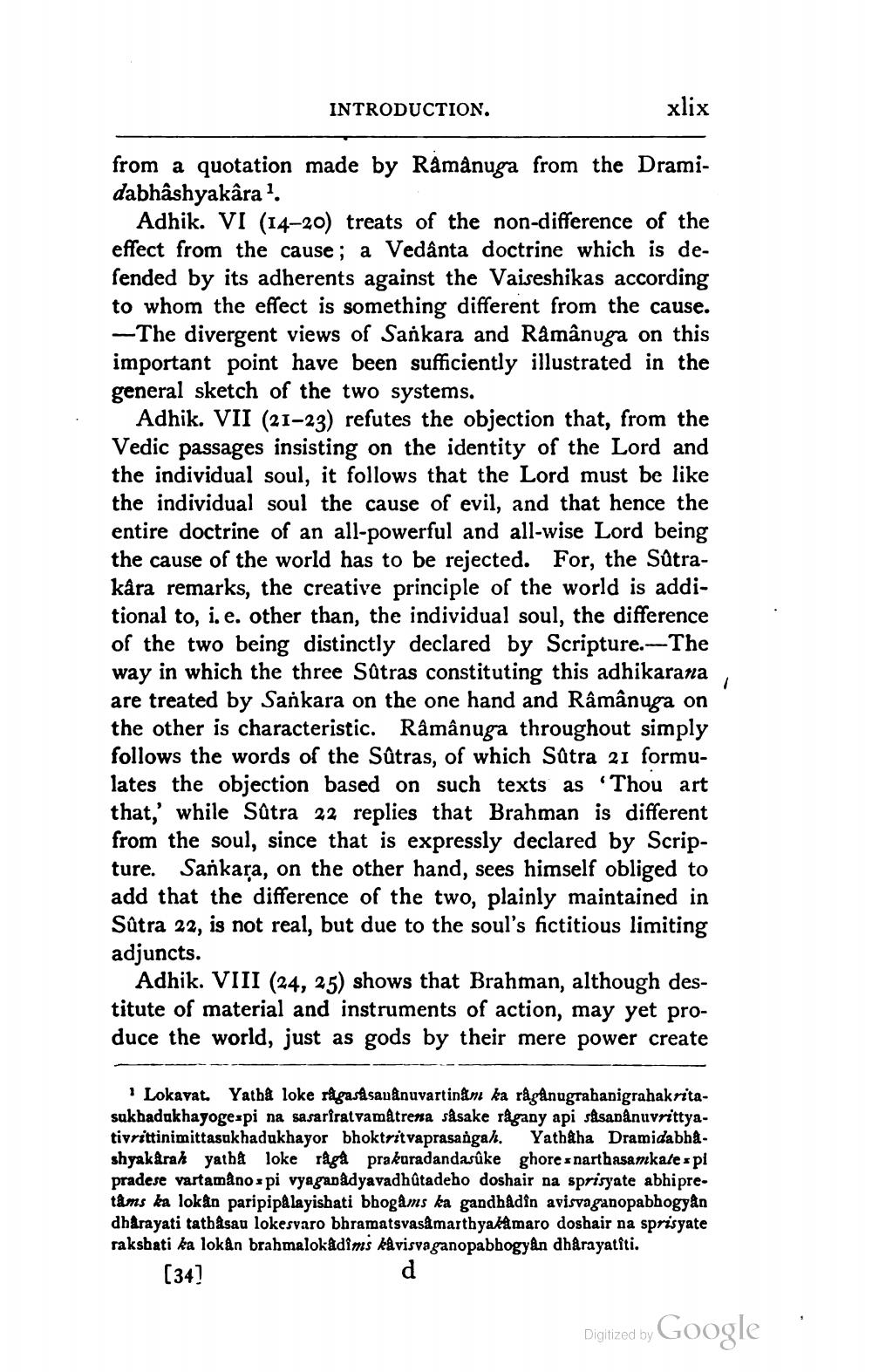________________
INTRODUCTION.
xlix
from a quotation made by Ramanuga from the Dramidabhâshyakâra 1.
Adhik. VI (14–20) treats of the non-difference of the effect from the cause; a Vedanta doctrine which is defended by its adherents against the Vaiseshikas according to whom the effect is something different from the cause. -The divergent views of Sankara and Råmânuga on this important point have been sufficiently illustrated in the general sketch of the two systems.
Adhik. VII (21-23) refutes the objection that, from the Vedic passages insisting on the identity of the Lord and the individual soul, it follows that the Lord must be like the individual soul the cause of evil, and that hence the entire doctrine of an all-powerful and all-wise Lord being the cause of the world has to be rejected. For, the Sūtrakâra remarks, the creative principle of the world is additional to, i.e. other than, the individual soul, the difference of the two being distinctly declared by Scripture. The way in which the three Sätras constituting this adhikarana are treated by Sankara on the one hand and Râmânuga on the other is characteristic. Râmânuga throughout simply follows the words of the Sûtras, of which Sätra 21 formulates the objection based on such texts as 'Thou art that,' while Sûtra 22 replies that Brahman is different from the soul, since that is expressly declared by Scripture. Sankara, on the other hand, sees himself obliged to add that the difference of the two, plainly maintained in Sútra 22, is not real, but due to the soul's fictitious limiting adjuncts.
Adhik. VIII (24, 25) shows that Brahman, although destitute of material and instruments of action, may yet produce the world, just as gods by their mere power create
1 Lokavat. Yathê loke rågasasan&nuvartinän ka råganugrahanigrahakritasakhadakhayogespi na sasariratvamåtrena såsake rå gany api sasapanuvrittyativrittinimittasukhadakhayor bhoktritvaprasangah. Yath&ha Dramidabhashyakarak yath& loke råga prakaradandasûke ghores narthasamkate s pi pradese vartamâno s pi vya gapadyavadhůtadeho doshair na sprisyate abhipre. tams ka lokán paripipalayishati bhogams ka gandhådîn avisvaganopabhogyan dhårayati tatbåsau lokesvaro bhramatsvasamarthyakimaro doshair na sprisyate rakshati ka lokán brahmalokadîms kávisva ganopabhogyan dharayatîti.
(34)
Digitized by Google




